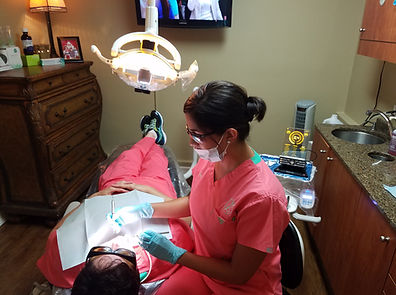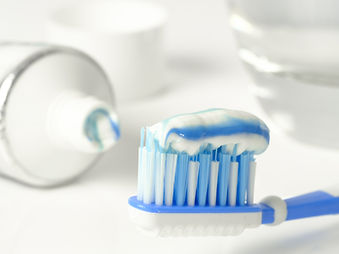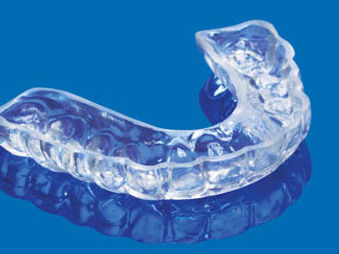
Dr. Tanya Pierce Lawhon, DDS
Preventive Care
Did you know that many diseases and conditions first show signs in the mouth? Good dental health is an important factor in overall health, that's why the American Dental Association recommends you see your dentist every six months. Building a relationship with a dental practice can help you maintain and improve your smile, and prevent problems before they become serious.
Our preventive services include, Comprehensive exams, sealants, Fluoride Treatments, Night Guards, Oral Cancer screenings, and dental cleanings. Read more about our preventive services below
Comprehensive Exam/Consultation
Our Comprehensive exams include:
-
Medical History
-
Existing dental conditions and needed treatment
-
Oral cancer screenings
-
Smile evaluations
-
blood pressure screenings
-
Reviewing patient concerns
-
X-rays
-
Risk for dental decay
-
Evaluation of the jaw and joint (TMJ)
-
Periodontal screening to determine health of gums and supporting structures
Dr. Lawhon will review all findings and discuss possible treatment options to help you achieve the smile that you want and deserve. Establishing a relationship and returning for scheduled dental appointments with ensure a lifetime of smiles for you and your family.
Routine Dental Cleanings

Our dental hygienists aim is to remove plaque, tarter and stains that have accumulated on the teeth. Even with routine brushing and flossing of your teeth and gums, tarter can develop. The professional cleaning of teeth is a crucial part of good oral hygiene and is needed periodically to maintain the health of your teeth and gums. It is recommended to have your teeth professionally cleaned every months to reduce the likelihood of periodontal disease progressing. In between routine cleanings, good oral hygiene at home is vital to prevent tarter build-up and gum disease.
Dental cleanings are designed to remove plaque and tarter deposits that have built up on teeth over time. Plaque is the sticky, soft film that contains millions of bacteria. This bacteria found in plaque is what causes gum disease and tooth decay if not removed by daily brushing and flossing, as well as routine trips to the dentist. Tarter, or dental calculus, is a hard calcified deposit that forms on the teeth and can contribute to their decay.
At our routine cleanings you can expect to have your check up x-rays, if you are due at that time, your dental cleaning, periodic exam by the Dr. Lawhon and have the chance to let us know if there is any thing bothering you.
Fluoride Treatments

Fluoride can be an important part of preventing tooth decay in patients of all ages. During your visit, we will determine your risk for dental decay by discussing your diet, homecare, previous decay history, dry mouth and prescription medications. Fluoride treatment can be done:
-
In the office: Treatment can be done during your regular exam using a fluoride varnish which is brushed onto the teeth.
-
At home: At home options for fluoride treatment include prescription toothpaste or a rinse to be used daily. It is important to follow all recommendations made to you by your dentist.
Sealants

Sealants are a plastic resin material that is applied to the chewing surface of the back teeth. They act as a barrier, protecting enamel from plaque and acid that contribute to dental decay. Toothbrush bristles cannot reach into deal depresstions and grooves of the teeth and the sealant helps to protect these areas.
Sealants are easily applied and take only a few minutes for each tooth. Sealants will be checked at each appointment to make sure they are retained, reapplication may be needed after time. This service is great for kids who are beginning to erupt their adult molar teeth and it is generally covered by insurance.
Night Guards

If you frequently wake up with a sore jaw, a dull headache or tooth pain, you may want to ask a if you are suffering from a condition called bruxism. Bruxism, or teeth grinding, affects about 10 to 15 percent of adults, according to the American Dental Association.
There are several ways to alleviate the effects of bruxism. One of the most common, which may be recommend, is a night guard. This is an appliance typically worn while sleeping through the night.
Night guards are custom made to fit your teeth in out office. Guards of this type tend to be of a higher quality and superior fit than the store bought ones, as they are made in a special laboratory from an impression of your mouth carefully taken by one of our dental assistants or hygienist. We offer two types of night guards in our office, hard or soft. Depending on your severity of grinding or clenching, we can help decide which fits best for you.
Regardless of where a night guard is purchased, its main function is to prevent the surfaces of your teeth from grinding together, causing you to chip and crack your teeth and strain your jaw muscles.
You you believe you are a bruxer, consult us at your next appointment.



Occlusal wear
Oral Cancer Screening

Oral cancer can be life--threatening if not diagnosed and treated early. Dr. Lawhon will provide oral cancer screenings as part of your regular dental exam
There are two main risk factors for oral cancer. Smoking and tobacco use are long-term historic causes of oral cancer. But, remember, just because your are not a smoker or tobacco user, it does not keep you from getting oral cancer. health, non-smoking individuals also, may have a risk factor.
The symptoms of oral cancer include:
-
Sores in the mouth that bleed easily or do not heal
-
A thick or hard spot or lump
-
A roughened or crusted are
-
Numbness, pain or tenderness
-
A change in the way your teeth fit together
when you bite down
Your dentist can be the first line of defense in identifying
abnormalities in the mouth, which could be a sign of oral cancer.
